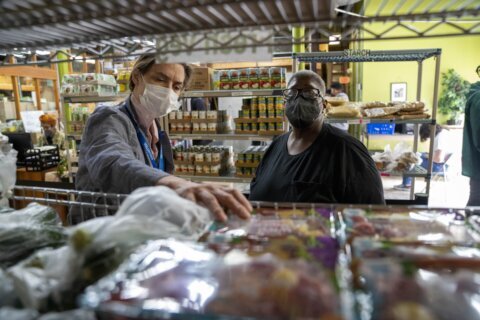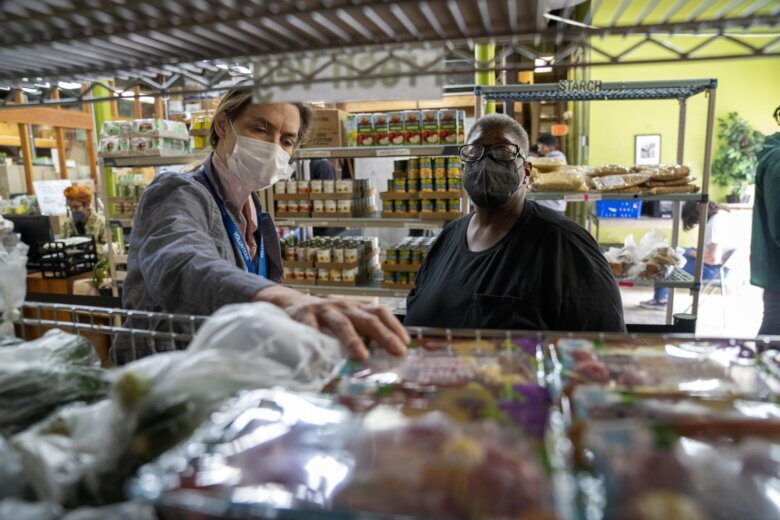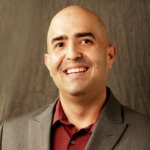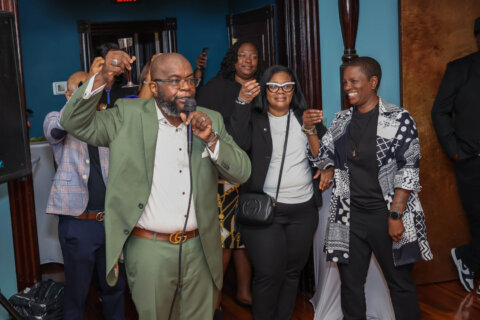
D.C. nonprofit Bread for the City is offering extra financial support to people in need who are suffering from a chronic condition.
The program is called “Cash RX” and its goal, according to the organization, is to address economic inequality and health disparities in the District.
“It’s literally a prescription for cash,” said Brittany Pope, the economic security supervisor in the social services department at Bread for the City.
The program is helping five D.C. residents suffering from chronic conditions, such as high blood pressure, uncontrolled diabetes, depression and anxiety.
“Food insecurity, housing insecurity, community safety, being able to have access to reliable transportation — all of the things that contribute to our well-being,” Pope said of what residents can do with the funds the organization gives out.
Pope said the participants are the ones who determine how much money they receive from the program and decide on how they want to spend the funds. Among the first participants, organizers found the average monthly ask was between $1,100 and $1,400 a month.
“We wanted to do something innovative, something new, and show that if the participants have the keys and they are involved in selecting their cash amount, it’ll sort of contradict these narratives that the participants won’t spend the money in ways that will benefit their lives,” Pope said.
The program is only being announced now, but it officially kicked off late last year and has been successful, according to the organization.
The recipients are also required to check in quarterly. Results show that those recipients are using the money they’ve received in positive ways, according to Daisy Gomez Palacios, a member of the economic security team.
“They’re less stressed about being able to afford utilities, rent, food,” Gomez Palacios said.
It has also decreased a sense of food and housing insecurity, according to Gomez Palacios.
In one case, Gomez Palacios said a participant used the money to pay for a pair of “more fashionable” glasses for her middle school aged daughter that were not covered by their insurance.
“Yes, it’s just a pair of glasses, but to a child and to a mother who can provide that for the child, it means a lot more,” Gomez Palacios said.
In another instance, a diabetic woman is using the money to pay for a pescatarian diet, which helps her to treat her condition.
With a third participant, not having a limitation on how to spend the money allows them to buy culturally important foods that remind them of the country in which they grew up.
“Because of Cash RX, she’s able to buy that food with more frequency and it helps her with her homesickness,” Gomez Palacios.
While some might express concerns that a participant might spend the money on harmful items, such as alcohol or drugs, that wasn’t a concern for the organization and they said this project shows that doesn’t happen.
“‘What if people spend money on things that are nefarious? What if people are spending money on alcohol [or] unnecessary things?’ What we’re seeing is that it’s not true,” Gomez Palacios said.
The program is funded in part from a health fund made with the proceeds of a settlement between D.C. and insurer Care First. Other donations that help fund the program come from both the Diane & Norman Bernstein Foundation and the Hartfield Foundation.
Pope said the early results show this program is working and that they plan to select five more participants.
“This is a holistic project. We’re lifting up not only things that support their physical and mental health, but their spiritual health and their well-being as a whole,” said Pope.
Her hope is that this program not only expands down the road, but also serves as an example to others.
“We’re hoping that when the program reaches the end of this phase, and that we’re able to report our outcomes, that it’ll be a model that will change systems,” said Pope.
Get breaking news and daily headlines delivered to your email inbox by signing up here.
© 2024 WTOP. All Rights Reserved. This website is not intended for users located within the European Economic Area.









